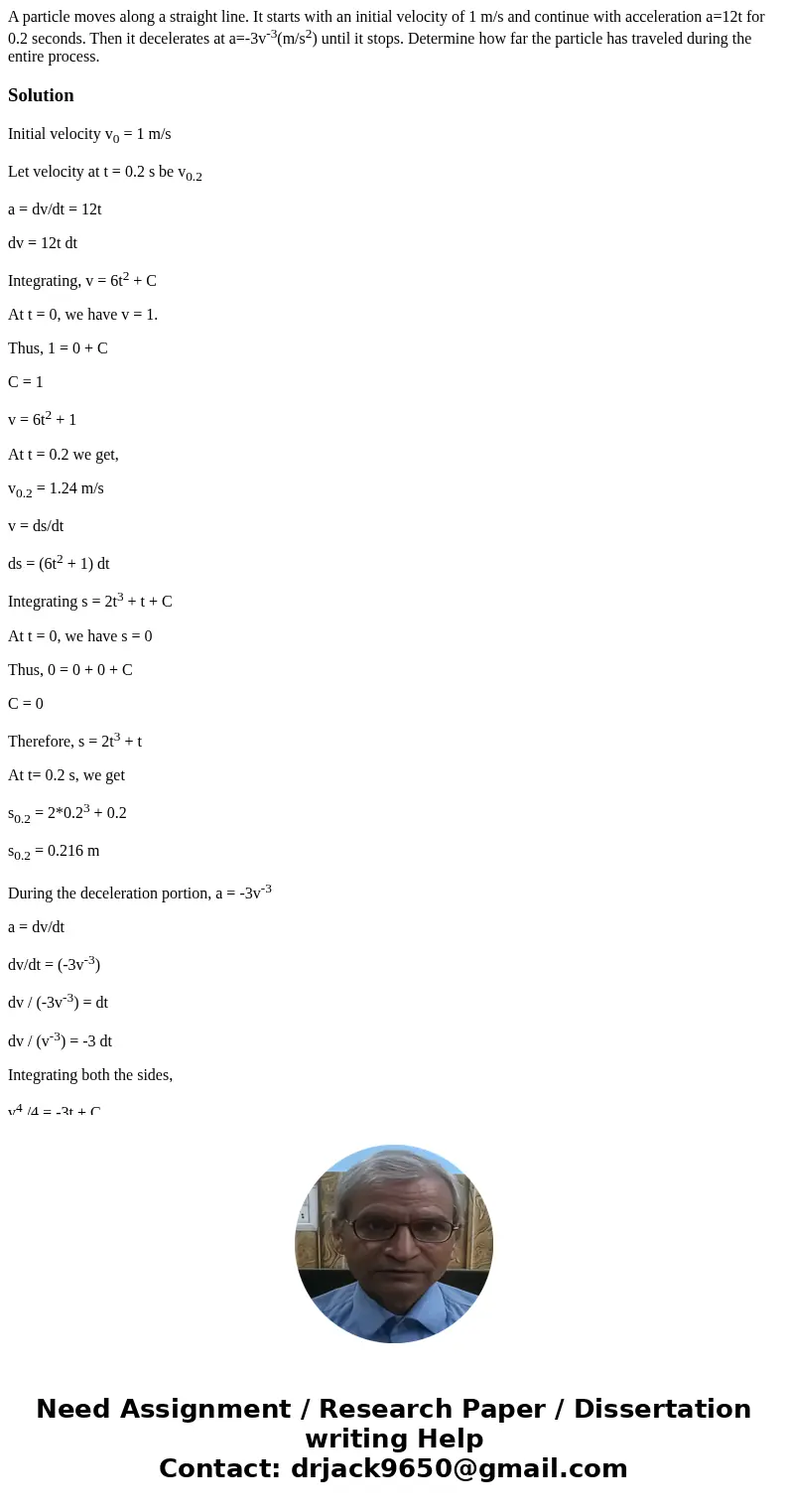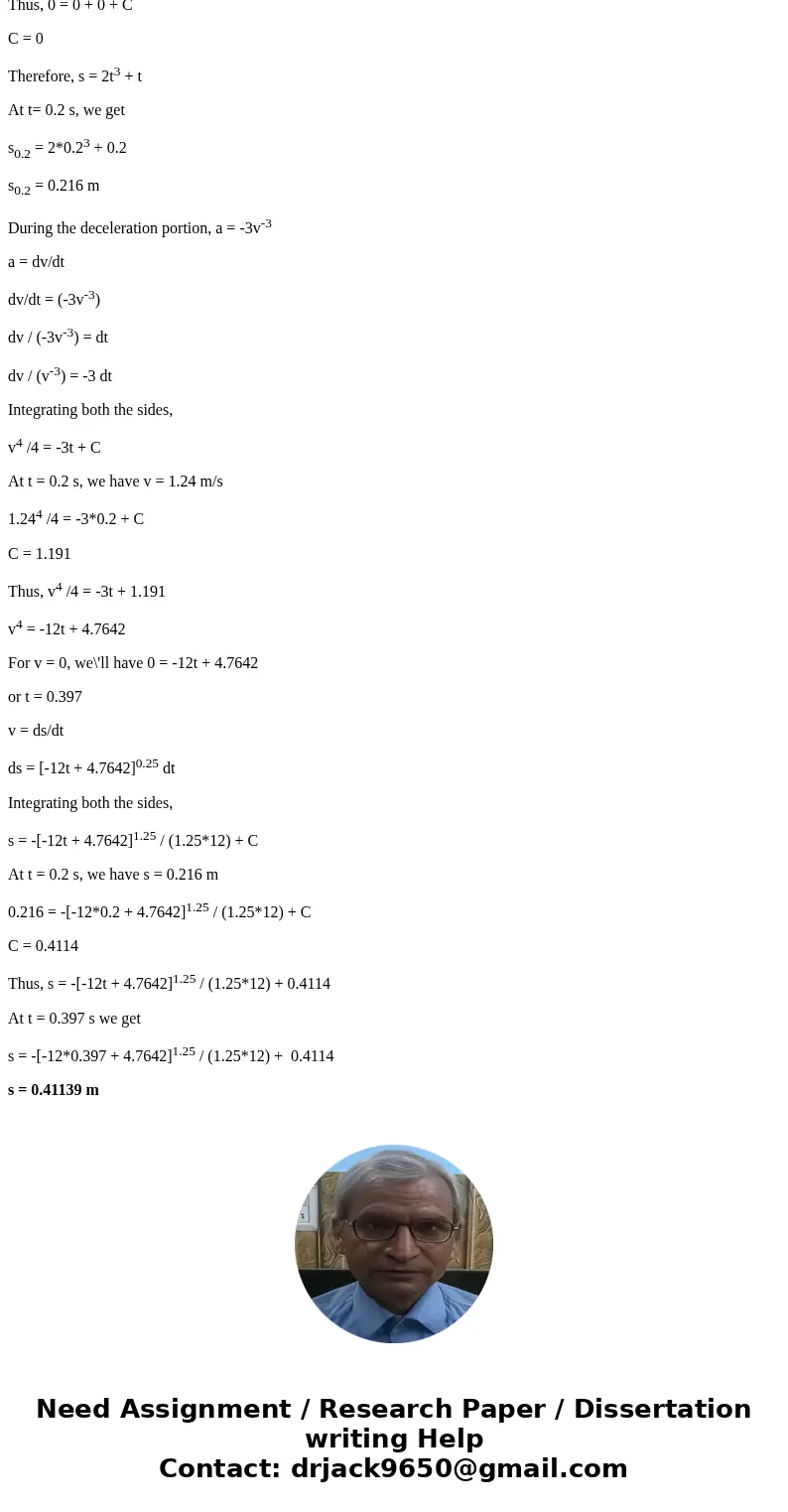A particle moves along a straight line It starts with an ini
A particle moves along a straight line. It starts with an initial velocity of 1 m/s and continue with acceleration a=12t for 0.2 seconds. Then it decelerates at a=-3v-3(m/s2) until it stops. Determine how far the particle has traveled during the entire process.
Solution
Initial velocity v0 = 1 m/s
Let velocity at t = 0.2 s be v0.2
a = dv/dt = 12t
dv = 12t dt
Integrating, v = 6t2 + C
At t = 0, we have v = 1.
Thus, 1 = 0 + C
C = 1
v = 6t2 + 1
At t = 0.2 we get,
v0.2 = 1.24 m/s
v = ds/dt
ds = (6t2 + 1) dt
Integrating s = 2t3 + t + C
At t = 0, we have s = 0
Thus, 0 = 0 + 0 + C
C = 0
Therefore, s = 2t3 + t
At t= 0.2 s, we get
s0.2 = 2*0.23 + 0.2
s0.2 = 0.216 m
During the deceleration portion, a = -3v-3
a = dv/dt
dv/dt = (-3v-3)
dv / (-3v-3) = dt
dv / (v-3) = -3 dt
Integrating both the sides,
v4 /4 = -3t + C
At t = 0.2 s, we have v = 1.24 m/s
1.244 /4 = -3*0.2 + C
C = 1.191
Thus, v4 /4 = -3t + 1.191
v4 = -12t + 4.7642
For v = 0, we\'ll have 0 = -12t + 4.7642
or t = 0.397
v = ds/dt
ds = [-12t + 4.7642]0.25 dt
Integrating both the sides,
s = -[-12t + 4.7642]1.25 / (1.25*12) + C
At t = 0.2 s, we have s = 0.216 m
0.216 = -[-12*0.2 + 4.7642]1.25 / (1.25*12) + C
C = 0.4114
Thus, s = -[-12t + 4.7642]1.25 / (1.25*12) + 0.4114
At t = 0.397 s we get
s = -[-12*0.397 + 4.7642]1.25 / (1.25*12) + 0.4114
s = 0.41139 m


 Homework Sourse
Homework Sourse